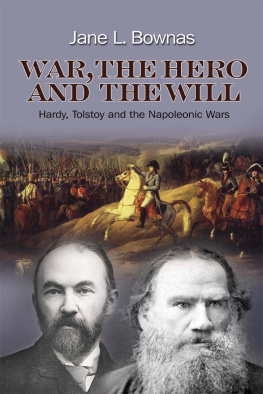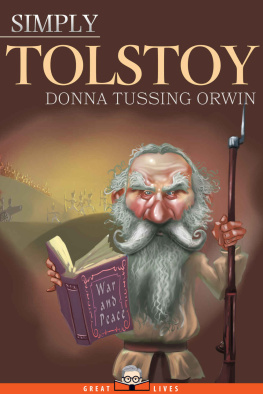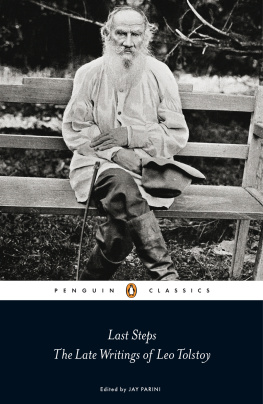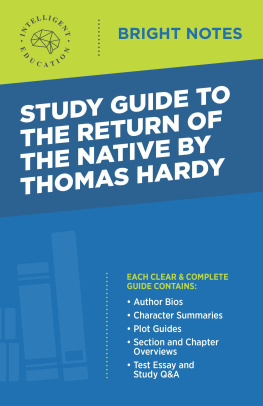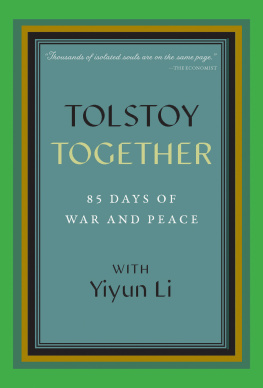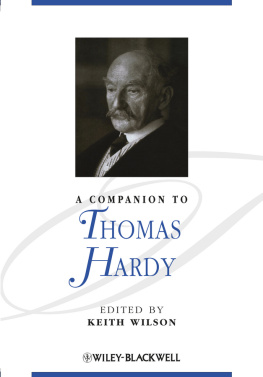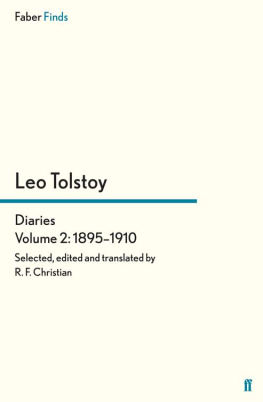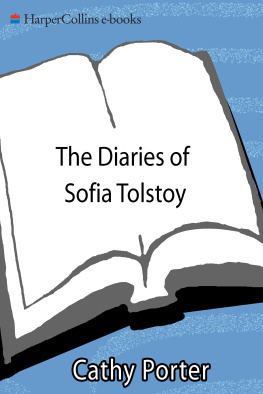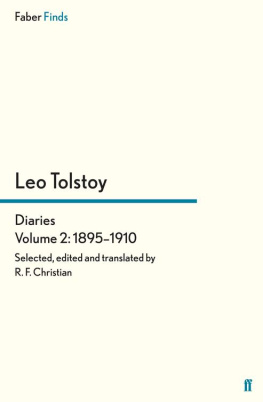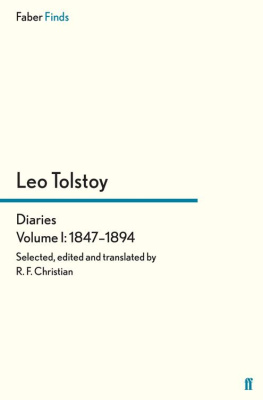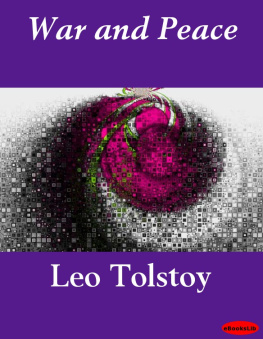Thomas Hardys The Dynasts and Leo Tolstoys War and Peace are both works which defy attempts to assign them to a particular genre but might seem to have little else in common apart from being set in the same period of history. This study argues that there are important similarities between these two works and examines the close correspondence between Hardys and Tolstoys thinking on themes relating to war, ideas of the heroic and the concept of free will. Although coming from very different backgrounds, both writers were influenced by their experiences of war, Tolstoy directly, by involvement in the wars in the Caucasus and the Crimea, and Hardy indirectly, by the events of the Anglo-Boer Wars. Their reaction to these experiences found expression in their descriptions of the wars fought against Napoleon at the beginning of the century.
Hegel saw Napoleon as the great world-historical man of his time, and this work considers the ways in which Hardy and Tolstoy undermine this view, portraying Napoleons physical and mental decline and questioning the role he played in determining the outcomes of military actions. Both writers were deeply interested in the question of free will and determinism and their writings reveal their attempts to understand the nature of the force which lies behind mens actions. Their differing views on the nature of consciousness are considered in the light of modern research on the development of the conscious brain.
Jane L. Bownas is an independent scholar who has published several articles on Thomas Hardy, and her book, Thomas Hardy and Empire: The Representation of Imperial Themes in the Work of Thomas Hardy was published in 2012.
Copyright Jane L. Bownas 2015.
Published in the Sussex Academic e-Library, 2015.
SUSSEX ACADEMIC PRESS
PO Box 139
Eastbourne BN24 9BP, UK
and simultaneously in the United States of America and Canada
All rights reserved. Except for the quotation of short passages for the purposes of criticism and review, no part of this publication may be reproduced, stored in a retrieval system or transmitted in any form or by any means, electronic, mechanical, photocopying, recording or otherwise, without the prior permission of the publisher.
British Library Cataloguing in Publication Data
A CIP catalogue record for this book is available from the British Library.
Library of Congress Cataloging-in-Publication Data
Bownas, Jane L.
War, the hero and the will : Hardy, Tolstoy and the Napoleonic wars /
Jane L. Bownas.
pages cm
ISBN 978-1-84519-670-7 (hb : alk. paper)
ISBN 978-1-78284-196-8 (e-pub)
ISBN 978-1-78284-197-5 (e-mobi)
ISBN 978-1-78284-198-2 (e-pdf)
1. Hardy, Thomas, 18401928. Dynasts. 2. Tolstoy, Leo, graf, 1828 1910. Voina i mir. 3. Napoleonic Wars, 18001815Literature and the wars. 4. Napoleon I, Emperor of the French, 17691821In literature.
5. War in literature. 6. Heroic virtue in literature. 7. Free will and determinism in literature. I. Title. II. Title: Hardy, Tolstoy and the Napoleonic wars.
PR4750.D8B69 2015
823.8dc23
2014043298
This e-book text has been prepared for electronic viewing. Some features, including tables and figures, might not display as in the print version, due to electronic conversion limitations and/or copyright strictures.
Contents
Index
Cover Illustration
Cover image: Bataille dIena by Charles Thevenin (17641838)
http://commons.wikimedia.org/wiki/File%3ABataille dIena.jpg
( http://www.similart.fr/taxonomy/term/178/diaporama) [Public domain], via Wikimedia Commons from Wikimedia Commons.
Introductory Chapter
The Dynasts is probably the least well known and least frequently read of all Thomas Hardys works, whereas Tolstoys War and Peace has remained one of the best known works of European literature since it was first published in 1869. Apart from the obvious commonality of being set in the same period of history, I suggest that there are many similarities between The Dynasts and War and Peace, and that in these works both Hardy and Tolstoy explore similar themes relating to war and history and search for answers to profound philosophical questions. There are of course important differences between the works and these must be considered in the context of the countries in which Hardy and Tolstoy were writing and the historical processes taking place in those countries throughout the nineteenth century. At the end of the previous century defeat in the American War of Independence had had a profound effect on the ruling lite in Britain, resulting in a sharp move to the Right, a new impatience with opposition and a hard determination to shore up the fabric of the state.the disillusionment experienced by the Romantic poets in Britain, but there is a suggestion at the end of War and Peace that he will become part of the Decembrist movement, demanding constitutional reform and an end to serfdom, the uprising of this movement being brutally put down by Tsar Nicholas I in 1825.
After the defeat of Napoleon, the Industrial Revolution, which had originated in Britain at the end of the eighteenth century, accelerated across Europe, bringing about huge changes in the lives of workers. In 1830 and again in 1848 there were widespread demonstrations against political leaders and against the exploitation of workers by the capitalist owners of industry. These rebellions were quickly put down, but people were left with a profound sense of alienation from the expanding capitalist system which controlled their lives and seemed to remove individual agency. The Marxist writer Georg Lukcs considers that there was a direct relationship between these events and the rise of the realist novel, in which there was an emphasis on the lives of ordinary individuals and their inner thoughts and feelings. Lukcs sees this moving inwards as a reaction to the differentiation of society under an industrialised, capitalist system, in which the majority no longer had the means to control their own lives.
Writing at the end of the century from a country which had experienced the upheavals of the industrial revolution and the rise of capitalism, Hardy did wish to abandon the realist novel and turn to a new form which had many features in common with the traditional epic, and would enable him to expose the effects that historical forces may have on ordinary people. On various occasions both writers compared their works to Homers Iliad, but it is clear that neither The Dynasts nor War and Peace can be equated with the great epics of the ancient world. Herbert Tucker considers that the genre to which Hardys masterpiece belongs is epic in the sense that the epic form can assimilate lesser genres enlist them as its constituents, contextualize them with each other.Prometheus Unbound and Byrons Cain, but although these may all be described as epic verse dramas, The Dynasts belongs firmly to the end of the nineteenth century. Both Hardy and Tolstoy were attempting in their works to recapture the totalities of existence, totalities which were being lost with increasing industrialisation throughout the nineteenth century.
A particular feature of the historical novel, was the representation of characters as types who could reflect certain social and historical trends, whereas in the realist novel typical characters were replaced by individuals with their own thoughts and feelings. In War and Peace Tolstoy does use typical characters such as old Prince Bolkonsky, a representative of the old order, the society hostess and patriot Anna Pavlovna, and Clausewitz the militaristic German officer, but most of his characters are not types but individuals who change and progress throughout the novel. For Hardy the adoption of the epic form and move away from the realist novel means that many of the characters in
Next page
